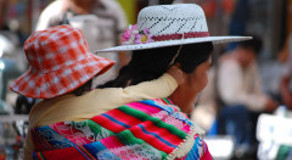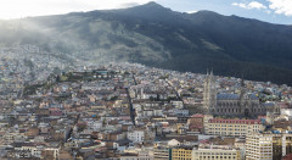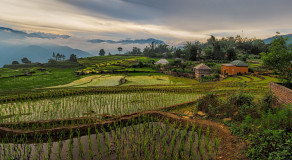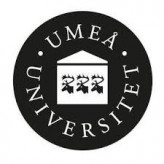
Coronavirus in Argentina: Everything you need to know
In Argentina, the propagation of COVID-19 or coronavirus grows at a moderate but relentless rhythm. Until March, 20th, 128 infected, 3 deaths and 22 recoveries were registered in the country. The numbers, which are published daily by the World Health Organization (WHO), are less serious than in countries like Italy or Spain, but they have alarmed the government and the population because the number of infected per day is increasing.
Compared to the previous day, for example, on March, 20th, 31 cases of infected people by the virus were reported. To prevent this upward curve from aggravating, the national government ordered a total quarantine which started on March, 20th at 00.00 and would tentatively finish, on March, 31th.
How does Argentina position itself in relation to the world?
According to an article published by La Nación newspaper, Argentina is ranked at 62nd of countries with the highest number of infected. The list of the first ten consists of: China with 81156 cases, Italy with 47021, Spain with 20410, Germany with 19848, Iran with 19644, the USA with 18931, France 12612, South Korea 8652, Switzerland 5336 and the UK 3983.
With 3 deaths in all of the national territory at the time the quarantine was enacted, Argentina was one of the countries which more rapidly took action to fight the pandemic. Previously, it had been decided to close schools, with 56 cases of infected and 2 deaths. To make a comparison, France and Spain canceled classes with no less than 2300 registered cases and around 50 dead people in each country.
Which were the main measures taken by the national government before enacting the total quarantine?
On March, 15th, the president of the nation Alberto Fernández announced the suspension of classes in kindergartens, primary and secondary schools until March, 31th. In addition, he formalized the closure of borders until that date- with the possibility of an extension-. Finally, it became known that those over the age of 60, pregnant women and people under 60 at “risk conditions” would have a leave from their jobs. In this context, the president pointed at a general action linked to remote working, home office, and asking all those people who could work at home to do it.
All the international flights coming from the countries affected by coronavirus were canceled from March, 17th onwards. The measure became official through a necessity and emergency decree. It is extended, at first, for the term of 30 days and it includes flights coming from China, South Korea, Japan, Iran, the USA, and all European countries. From that date onwards, the only flights which are allowed to enter the country are those operated by Aerolíneas Argentinas.
From March, 17th, all travelers coming from countries considered risky who enter the country should fulfill the absolute and compulsory quarantine for 14 days to avoid the spread of the virus. This measure not only includes the Argentinians who come back to the country from risky zones but also foreigners who come from the same destinations.
The national government announced the restriction of the public transport system in all the national territory from 00:00 of Friday, 20th March to Wednesday, 25th of the same month. The measure comprises cabotage flights, buses, and long-distance trains. Likewise, from Thursday, 19th the public transport system of the Metropolitan area of Buenos Aires can only take passengers who can have a seat.
Compulsory social isolation
The president formalized the compulsory social isolation all over Argentina from 00:00 of Saturday, 20th March to Tuesday, 31th of March. The objective of this measure is to, according to Fernández, flatten the curve of possible transmission or eventual victims through social contact. If this objective is fulfilled, the quarantine will finish in the stipulated date. In case that the number of infected people increases, the Executive does not dismiss the possibility of extending it. The compulsory quarantine at the national level is the most drastic measure taken by the government since the coronavirus started to spread over the country.
UPDATE: the restrictions have been extended to April 13th, after Easter.
Harsh controls
From the beginning of the quarantine, the Prefecture, the Gendarmerie, and the Federal Police together with the provincial forces make rounds to control who circulates in the streets. Those who cannot offer an explanation about what they are doing in the street will have to submit to the penalties stated by the law: “We are going to be absolutely inflexible”, claimed the president.
The exceptions
Fernández explained that “there are a series of activities which are excluded from this safeguard system” and he enumerated them in the following way: “Those who work in the national, provincial and municipal governments. Those who work in the sanitation sector, the security forces and the armed forces. And other activities like those who work in the production of food, drugs and some others like naphtha and diesel refinement”.
Other activities excluded from the measure are food delivery, car parks, and garages, big industries and religious guides circulation. The complete list of exceptions of the general quarantine can be consulted in the following link: https://www.lavoz.com.ar/ciudadanos/gobierno-preve-extender-excepciones-a-cuarentena-por-coronavirus. These exceptions intend to alleviate the impact of the total quarantine in the economy.
The responsibility falls on all of us
The head of state claims that the key to avoiding a tragedy regarding coronavirus is to reduce the massive circulation in public spaces. “We are lucky that the pandemic has arrived later, but everything is meaningless if the Argentinians don’t do their part. I ask people from the capital city and the province of Buenos Aires for their fullest cooperation. There is found the main focus of spread.” expressed towards the end of his speech on March, 19th. “I trust in the responsibility of all Argentinians. I trust there are no irresponsible people walking along the coast.”, he concluded categorically.
Get Involved - Create Change
If you're looking to share your skills for positive change-then join us to make a difference!

























